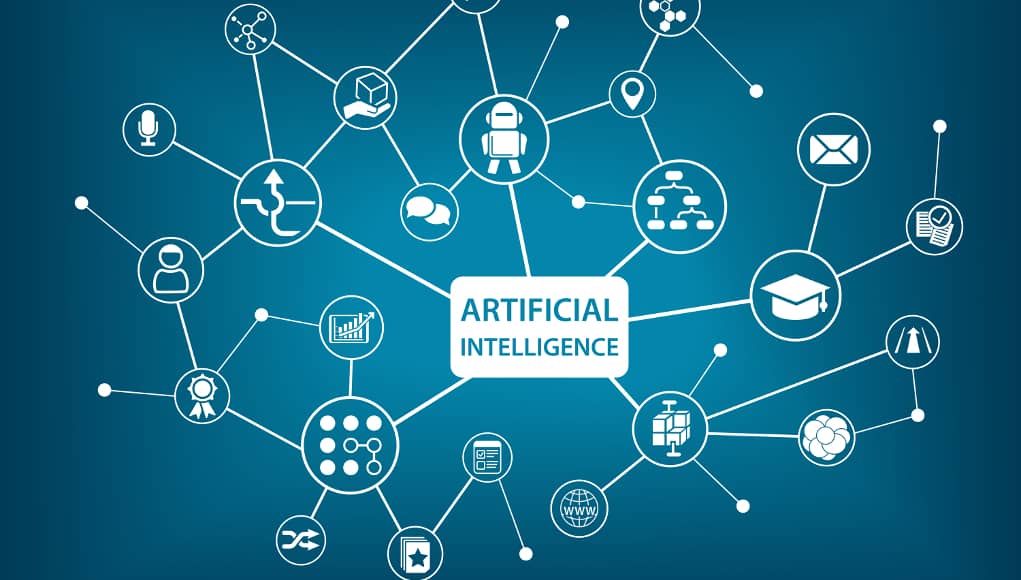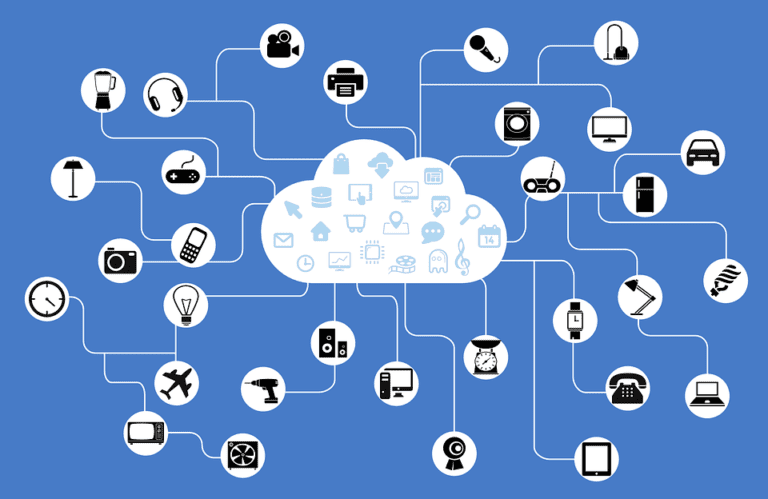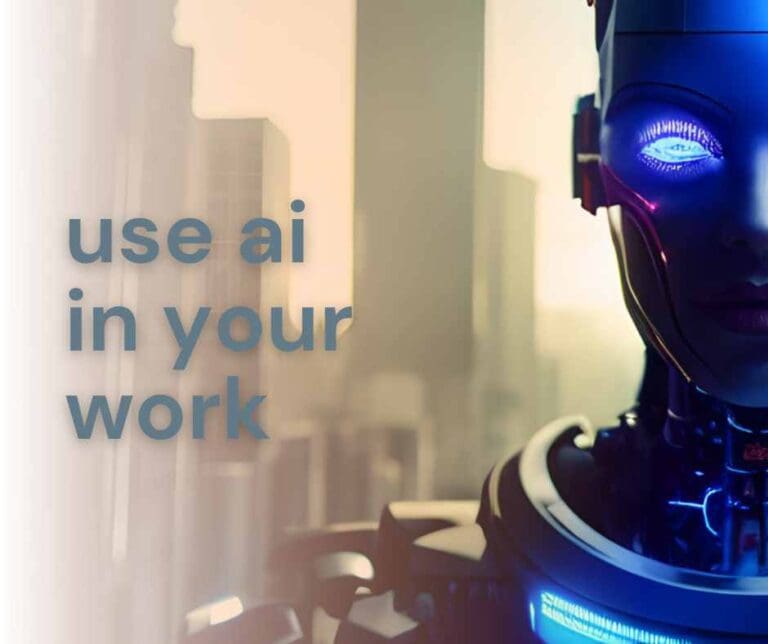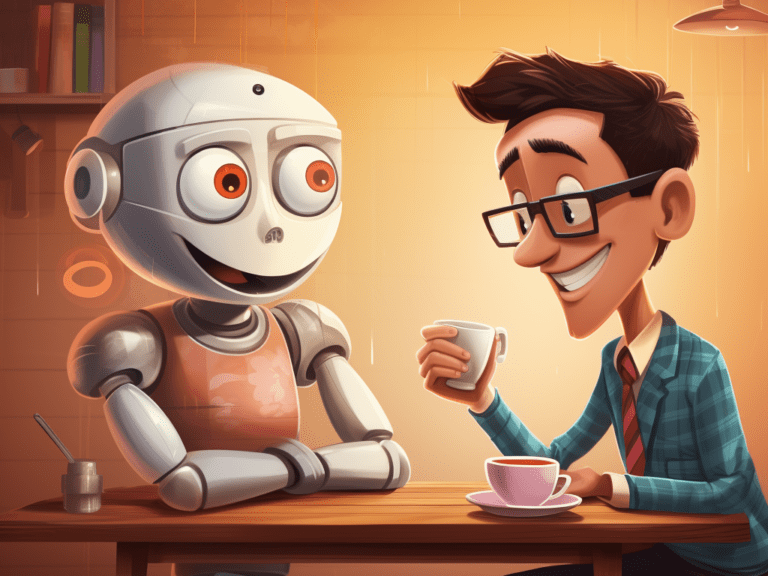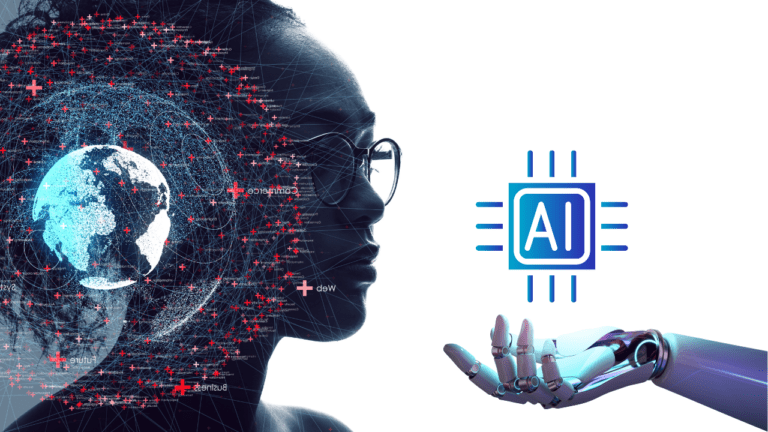Artificial Intelligence for Kids: Easy Guide to Future Tech
Artificial Intelligence for kids is a fascinating field that combines technology and human-like thinking. It’s the ability of a computer program or machine to think, learn, and solve complex problems by using instructions called programs. As a young mind, understanding AI can help expand your creativity and prepare you for an increasingly tech-driven world.
You may have noticed AI being used in many aspects of daily life, such as voice assistants like Siri or Alexa and even in your video games. AI technology can analyze and process large amounts of information quickly, allowing it to make decisions or predict outcomes based on the data it receives. This innovative technology aims to mimic human cognition, opening up a world of possibilities for kids and adults alike.
Exploring AI can be an exciting and rewarding experience that promotes creative thinking and problem-solving skills. When you learn about AI, you’re grasping essential coding concepts and understanding the ethical considerations behind its implementation. So, dive into the world of AI and discover the numerous opportunities it offers for your future!
Understanding Artificial Intelligence for kids
Artificial Intelligence (AI) refers to the ability of computers and machines to perform tasks that normally require human intelligence. These tasks include learning, problem-solving, decision-making, and even language processing. As a field of computer science, AI aims to make machines more intelligent and capable of mimicking human behavior or even surpassing it
In this section, we will introduce some basic concepts of AI and explore various applications suitable for kids.
Basic Concepts
At the core of AI are algorithms, which are a set of specific instructions that help computers process data and perform tasks. These algorithms can learn from large amounts of data input, identify patterns, and adapt their behavior in response to the information they receive.
One popular technique used in AI is machine learning, which allows computers to learn from data without being explicitly programmed. This helps machines improve their performance over time as they receive more data and adjust their algorithms accordingly.
Another important concept in AI is natural language processing (NLP), which focuses on enabling computers to understand, interpret, and generate human language. NLP can help AI systems interact with people in a more natural and intuitive way.
AI Applications
There are many applications of AI that can be interesting and useful for kids, including:
- AI-powered educational tools can help kids learn various subjects, offering personalized learning experiences and adjusting the content based on individual needs and progress.
- AI-assisted language learning: Language learning apps and programs often use AI-driven speech recognition and NLP to provide accurate pronunciation feedback and help with vocabulary and grammar.
- AI in gaming: AI helps make games more immersive, interactive, and challenging by creating adaptive virtual environments and non-player characters that can learn from players’ actions.
- Robotics for kids: Many educational robots designed for kids incorporate AI, allowing them to learn from their surroundings and interact with children in meaningful ways.
These are just a few examples of how AI can be applied to benefit and engage kids in various learning environments and activities.
AI Benefits for Kids
As the world embraces artificial intelligence (AI), it’s important for kids to experience its benefits as well.
Education
AI can significantly enhance your child’s learning process by providing personalized educational experiences tailored to their interests and abilities. For instance, intelligent tutoring systems can analyze your child’s progress and offer customized lessons to help them excel in their studies.
Also, AI can play a role in identifying areas where your child may need extra support, ensuring they receive the help they need in a timely manner.
Creativity
Encouraging creativity is an essential aspect of every child’s development. AI-powered tools can inspire your child to express their creativity by presenting them with unique challenges and ideas. For example, AI art programs let kids experiment with various styles and techniques, highlighting their imagination and artistic talent.
Furthermore, AI-driven music platforms can help your child discover new genres and develop their musical abilities by creating custom music pieces based on their taste and preferences.
Problem-Solving
AI can play a significant role in developing your child’s problem-solving skills. By engaging with AI-powered educational games, kids can be challenged to think critically and come up with innovative solutions to complex problems. This type of engagement helps sharpen their analytical skills, paving the way for their future success.
Moreover, AI-based learning curricula can foster collaborative problem-solving skills, enabling your child to work effectively with others in achieving shared goals.
Teaching AI to Kids
In today’s rapidly evolving world, it’s crucial for kids to learn about artificial intelligence (AI). Here are several ways you can help teach AI to kids:
Coding for AI
One of the most effective ways to teach AI to children is by introducing coding concepts. You can enroll your kids in AI coding classes that teach 21st-century skills through a STEM-based holistic curriculum. By participating in these classes, they will learn not only the basics of programming languages like Python but also the principles of machine learning and data analysis.
AI Toys and Games
Interactive AI toys and games can provide kids a fun and engaging way to learn about artificial intelligence. These toys can help your child develop problem-solving, logical thinking, and creativity. For example, consider using an AI-powered robot that can be programmed to perform various tasks. This hands-on experience will allow kids to explore the world of AI while having fun.
Online Resources
The internet is rich with AI resources suitable for children of different ages. For example, Preface.ai offers interactive activities that help students understand the importance of algorithms for AI. Similarly, Science Buddies provides a variety of AI-related STEM activities to engage kids in learning about AI concepts through projects and experiments.
In summary, teaching AI to kids through coding classes, AI toys and games, and online resources is crucial for preparing them for future careers in AI-related fields. Engaging your child in these activities will nurture their curiosity and enhance their understanding of this transformative technology.
Safety and Ethics
As a parent or educator, it’s essential to address safety and ethics when introducing artificial intelligence (AI) to children.
Data Privacy
One of the primary concerns with AI is data privacy. Children should be aware that the devices they interact with may collect and store their personal information. Teach your kids to be cautious while sharing personal details online and understand the privacy settings of the platforms they use.
When choosing AI-powered tools or toys for your children, research the companies behind them and ensure they have a commitment to safeguarding users’ data. Discuss with your children the importance of not oversharing personal information and the possible consequences of doing so.
Responsible Use
Teaching responsible use of AI starts by helping children comprehend the difference between ethical and unethical applications of AI. Encourage discussions around the potential benefits and drawbacks of AI in various contexts.
Introduce your children to ethical guidelines for AI and encourage them to think critically about the AI systems they encounter. Additionally, consider enrolling your child in programs like AI Ethics camps that focus on teaching kids the ethical implications of AI technology.
By fostering a healthy understanding of AI’s potential and limitations, you can empower your children to make informed and responsible decisions while interacting with AI systems in their daily lives.
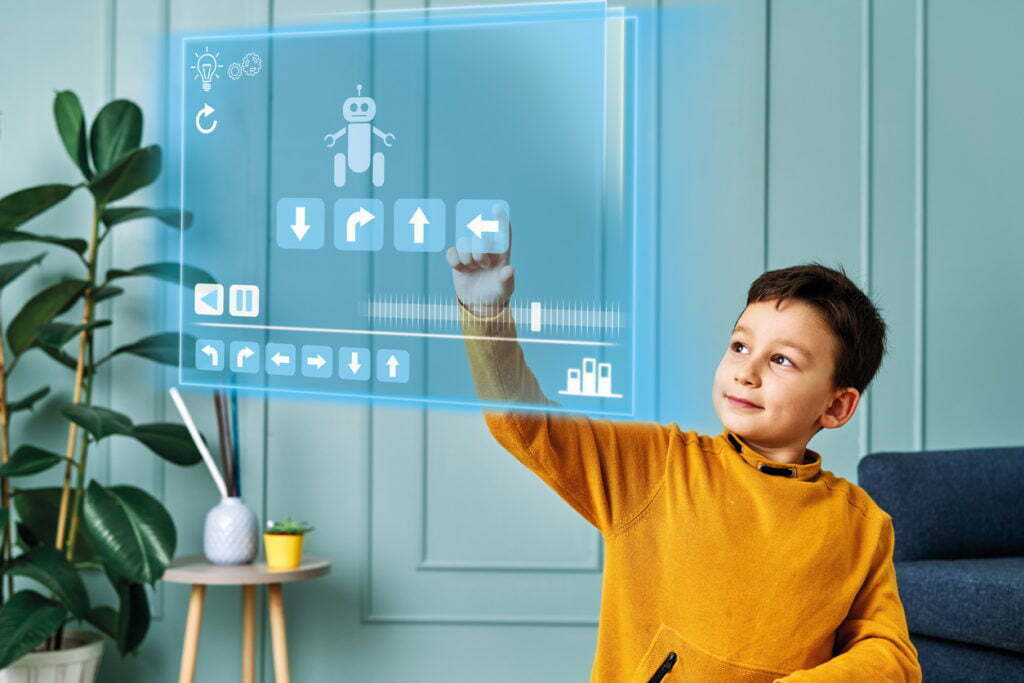
Future Opportunities
Career Pathways
As you explore the world of artificial intelligence, it’s important to consider the numerous career opportunities that lie ahead. AI has become a vital part of many industries, offering rewarding and challenging careers for those who choose to pursue it.
Some potential career pathways you can consider include:
- AI researcher: Focusing on the development of new AI technologies and algorithms.
- Data scientist: Analyzing large datasets and extracting valuable insights to drive informed decision-making.
- Robotics engineer: Designing and programming cutting-edge robots for a variety of applications.
- AI software developer: Implementing AI technologies into software applications to improve their functionality and efficiency.
AI Advancements
The world of AI is constantly evolving, with new advancements being made regularly. Embracing the potential of AI in your education and career will help you stay at the forefront of this exciting field. Some current and future AI advancements you might encounter include:
Natural Language Processing (NLP): This technology enables AI systems to understand and interpret human language, making it possible for machines to communicate more effectively with people.
Machine Learning (ML): ML algorithms help AI systems improve their performance and learn from data without explicit programming, allowing them to adapt and improve over time.
Computer Vision: This advancement in AI technology enables machines to understand and analyse visual information, paving the way for intelligent systems that can recognize objects, people, and more.
By staying informed about the latest advancements in AI and pursuing a career in this field, you can look forward to making a meaningful impact on a rapidly growing industry that promises exciting opportunities and challenges for years to come.
FAQ
What is artificial intelligence (AI) for kids?
Artificial intelligence simply means helping kids understand how computers and machines can perform tasks that usually require human intelligence. This includes perception, learning, problem-solving, and decision-making processes. AI for kids involves teaching children the basics of AI and how it’s used in everyday life.
How is AI helpful for kids?
AI can benefit kids in various ways, such as enhancing their learning experiences, engaging them in interactive educational games, and providing personalized learning opportunities to suit their individual needs. AI can also help kids with problem-solving, pattern recognition, and decision-making skills, which are essential for their overall development.
How do you explain AI to a 5-year-old?
To explain AI to a 5-year-old, you can start by saying that AI helps computers and robots think and learn in a way similar to how humans do. You can use simple examples, like how AI helps our favorite devices, like smartphones or video games, to understand what we want and to make decisions.
What are 3 types of AI?
Three types of AI include:
- Narrow AI: Specializes in one specific task, such as voice recognition or image analysis.
- General AI: Has the ability to perform any intellectual task that a human can do.
- Superintelligent AI: Surpasses human intelligence altogether and can outperform humans in virtually every aspect.
How can AI help the world?
AI can help the world in many ways, such as:
- Improving healthcare through disease diagnosis, treatment, and medical research.
- Reducing energy consumption and fostering sustainability.
- Enhancing education through personalized learning.
- Assisting in disaster relief and emergency response.
- Improving transportation and traffic management.
What is the future of AI?
The future of AI holds great potential for improving the quality of life, creating new job opportunities, and facilitating scientific breakthroughs. AI will continue to advance and become more integrated into various industries, impacting how we live, work, and interact with technology. However, we must also consider the ethical implications, privacy concerns, and potential risks associated with the rapid development of AI.

